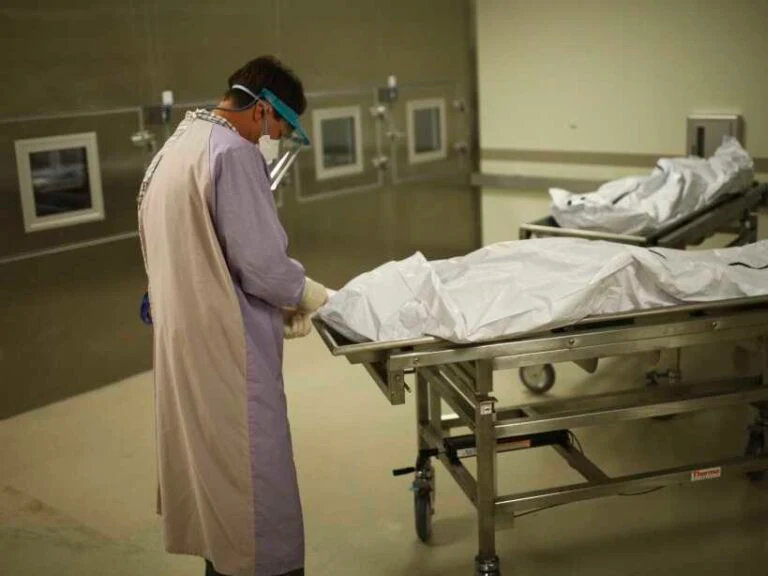Introduction
In the pursuit of justice, one of the most critical components of criminal investigations is the post-mortem examination. By rigorously analyzing the body of a deceased individual, forensic experts can uncover vital evidence that sheds light on the circumstances and causes of death. In India, post-mortem tests hold immense importance in criminal cases, as they play a pivotal role in establishing the truth, ensuring justice, and upholding the rule of law.
The Purpose of Post-Mortem Tests
Post-mortem tests, also known as autopsies, are conducted by trained forensic pathologists to determine the cause, manner, and time of death. They serve several key purposes in criminal cases:
- Establishing Cause of Death: The foremost objective of a post-mortem examination is to determine the cause of death. This determination is vital in cases where criminal intent, negligence, or foul play is suspected. The findings provide essential evidence to ascertain whether the death was a result of natural causes, accident, suicide, or homicide.
- Identifying Injuries and Trauma: A comprehensive examination of the body can uncover injuries, wounds, fractures, or other signs of trauma that may be indicative of criminal acts. This information is crucial in determining the nature and extent of violence inflicted on the victim, aiding investigators in identifying potential perpetrators and reconstructing the events leading to the death.
- Collecting Forensic Evidence: Post-mortem tests enable the collection of crucial forensic evidence, including DNA samples, fingerprints, hair, fibers, and trace evidence. These elements can link suspects to the crime scene, provide leads for further investigation, or exonerate individuals wrongfully accused. Such evidence often proves decisive in court proceedings, influencing the outcome of criminal trials.
- Time of Death Determination: Forensic experts employ various methods to estimate the time of death during post-mortem examinations. This information helps investigators establish the timeline of events, corroborate or contradict witness statements, and build a coherent narrative of the crime. Determining the time of death is particularly relevant in cases where alibis and time-sensitive evidence are significant factors.
Legal and Ethical Implications
In India, the importance of post-mortem tests in criminal cases is recognized by both the legal system and medical professionals. The Code of Criminal Procedure (CrPC) mandates the performance of post-mortem examinations in cases where the cause of death is unclear, suspicious, or unnatural. The findings of these tests hold evidentiary value and are admissible in court as expert opinion.
However, the significance of post-mortem tests extends beyond the courtroom. They contribute to the establishment of truth, bringing closure to grieving families, and ensuring that justice is served. The insights gained from these examinations can uncover hidden crimes, prevent potential cover-ups, and act as a deterrent against future criminal acts.
Challenges and the Way Forward
Despite their significance, the efficacy and quality of post-mortem tests in India face several challenges:
- Lack of Infrastructure: Many regions in India suffer from a lack of forensic facilities, resulting in inadequate post-mortem examinations. Insufficient resources, outdated equipment, and inadequate training of personnel can hamper the accuracy and thoroughness of the tests.
- Delays and Backlogs: The high volume of cases, coupled with a shortage of forensic experts, often leads to significant delays in conducting post-mortem tests. This delay hampers the timely dispensation of justice, impacts the quality of evidence, and adds to the distress of victims' families.
To address these challenges and ensure the effective utilization of post-mortem tests in criminal cases, the following steps are recommended:
- Strengthen Forensic Infrastructure: Investments should be made to enhance forensic facilities, update equipment, and provide comprehensive training to forensic pathologists. This will enable accurate and efficient post-mortem examinations.
- Streamline Processes: Implementing streamlined protocols, digital record-keeping, and standardizing procedures can expedite post-mortem tests. This will reduce delays, prevent backlogs, and ensure timely justice delivery.
- Collaboration and Capacity Building: Encouraging collaboration between forensic experts, law enforcement agencies, and the judicial system is crucial. Training programs, knowledge sharing, and interdisciplinary cooperation can enhance the understanding and application of forensic science in criminal investigations.
Conclusion
Post-mortem tests are indispensable in criminal cases, serving as a cornerstone in the pursuit of truth and justice. In India, these examinations play a crucial role in establishing the cause of death, identifying injuries, collecting forensic evidence, and determining the time of death. By addressing existing challenges and investing in infrastructure and capacity building, the country can strengthen its forensic capabilities, ensure efficient investigations, and uphold the principles of justice.










.webp)


0 Comments